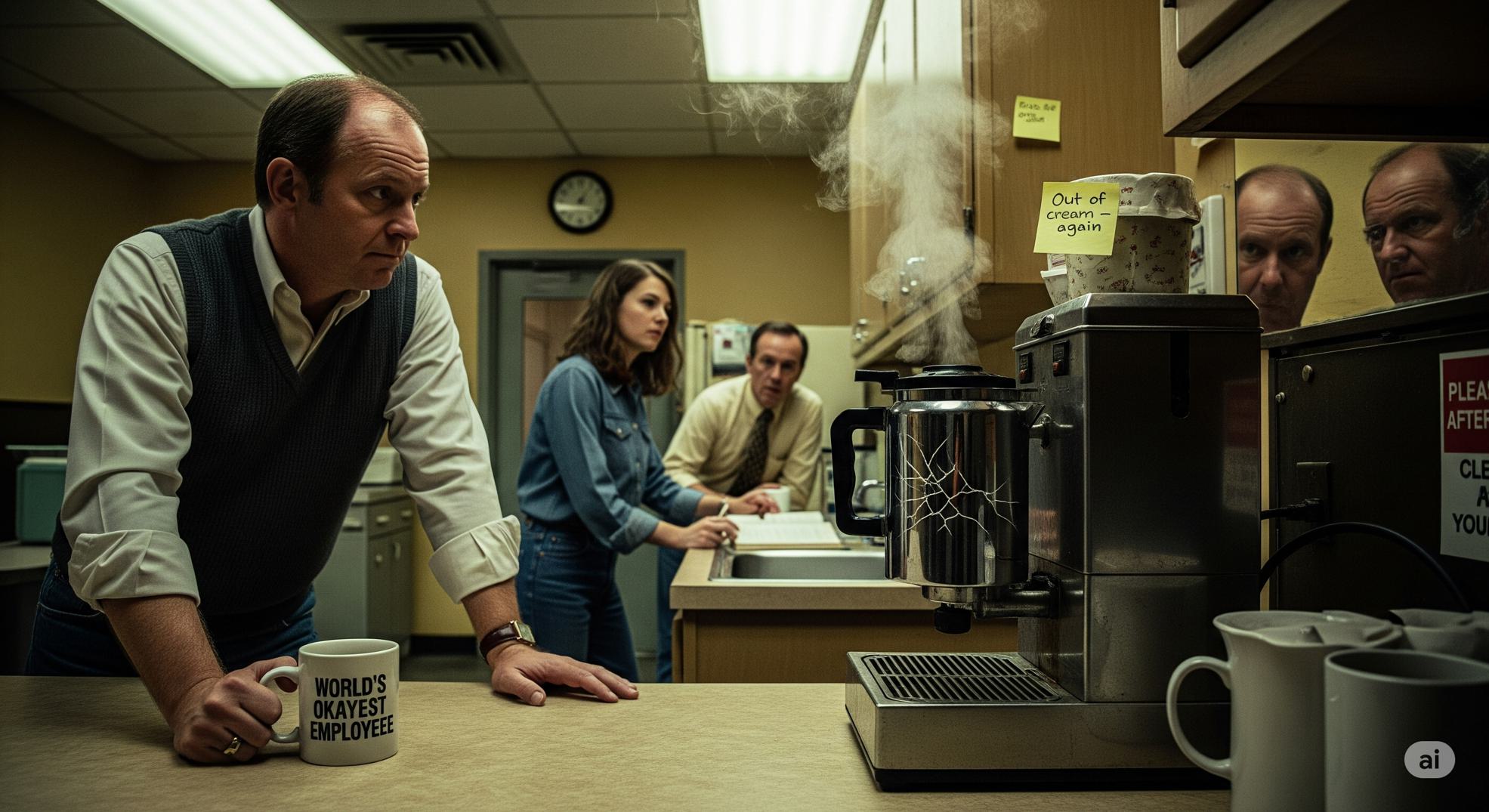The Unpoured Cup: Resisting the Automation of Self

The scene around the old coffee machine isn't just about a beverage; it's a microcosm of deeper anxieties within the workplace. The resistance isn't solely directed at the technology itself, but at what its introduction signifies about human value and autonomy.
The employees are resisting several interconnected ideas:
1. The Devaluation of Human Effort
"Augmentation" is framed as a positive, but for the employees, it feels like a subtle replacement. The Skeptic Employee's comment,
"They call it ‘augmentation.’ Like it’s a vitamin. Not a replacement,"
highlights the corporate euphemism masking a more threatening reality. If AI can do tasks faster or more efficiently, it implicitly diminishes the perceived value of the human input.
2. Loss of Ownership and Identity
The Traditionalist Employee's quiet declaration,
"I don’t care if it’s faster. I care that it’s mine,"
is perhaps the most poignant line. This speaks to the personal investment in one's work. The "routines, the rituals, the small acts of ownership" are not just tasks; they are part of their professional identity. When these are streamlined or taken over by AI, a sense of personal contribution and even purpose can be lost.
3. Erosion of Rituals and Community
The very act of standing around the coffee machine, even in silence, is a ritual. It's a moment of shared experience, however mundane. The "sticky note 'Out of cream – again'" and "sign 'Please clean up after yourself'" point to small, human-centric frustrations and shared responsibilities within the office. If AI changes the nature of work, these informal moments of connection and shared ritual might disappear, further isolating employees.
4. The Impersonal Nature of Progress
The Observer Employee's frustrated,
"It’s always a word. Always,"
hints at a broader resentment towards corporate speak and the way change is often presented as an undeniable, positive force, regardless of its human cost. The resistance is also against the impersonal nature of technological advancement that doesn't consider the emotional and psychological impact on individuals.
Ultimately, the biggest fear these employees are facing is existential:
They fear that their work, their contributions, and even their unique human qualities might no longer be valued or significant. The humming coffee machine, left unpoured, is a paused moment of reflection and quiet defiance in the face of an uncertain future.
In short:
They are afraid of losing meaning — in their work, their identity, and their place within the community and the organization.